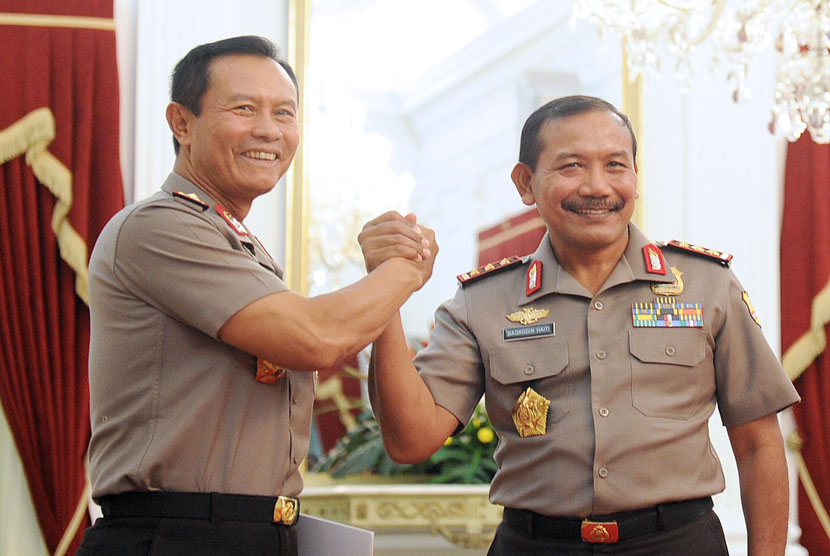REPUBLIKA.CO.ID, JAKARTA -- An associate chairman of the opposition Great Indonesia Movement Party (Gerindra), Habiburokhman, criticized President Joko Widodo's recent decision to appoint Commissioner General Badrodin Haiti as the acting national police chief.
In a text message received by Antara here on Saturday, he said that the president's decision was not correct and could cause three problems.
According to Habiburokhman, article 11 paragraph 5 of law number 2 of 2002 on the Indonesian police states that in case of an emergency, the president may temporarily dismiss the police chief and appoint an acting chief, and later ask for an approval from the House of Representatives (DPR).
The article explains that the emergency refers to a juridical situation that compels the president to dismiss the police chief because the chief has violated his oath of office and threatened the security of the state.
"Here is where the problem lies: Neither did General Sutarman violate his oath of office, nor did he threaten the security of the state. So based on the law, it is incorrect of the president to dismiss him and then appoint an acting chief," he stressed.
Habiburakhman further noted that Jokowi did not differentiate between the task and the authority of the national police chief. While announcing Sutarman's dismissal and the appointment of Badrodin Haiti, President Joko Widodo stated in his speech that Haiti would carry out both the task and authority of the national police chief.
"The handing over of the task and authority does not comply with what law number 2 of 2002 stipulates," he added.
He pointed out that article 11 paragraph 5 of law number 2 of 2002 only mentions "acting for" and not "acting for and holding the authority of," while the fact remains that the task and the authority of the national police chief are two different things.
The task of the national police chief, as regulated in article 14, includes regulating, safeguarding, escorting and monitoring activities of the society and the government according to needs, as well as organizing activities to ensure security, order and smooth traffic on the roads, and supervising the community to increase public participation, among others.
On the contrary, the national police chief's authority, as regulated in article 15, includes receiving reports and/or complaints, helping to settle disputes of community members that can disrupt public order, and preventing and overcoming vices.
The third problem that Habiburakhman foresees is related to the duration of the postponement of Budi Gunawan's installation, which he believes could be too long.
He observed that the president did not specify for how long Budi Gunawan's induction would be postponed. However, if it is delayed till the judicial process in which he is involved is completed and till the court declares him not guilty, it would take at least a year and six months.
The Corruption Eradication Commission (KPK) never produced an SP3, or an order for stopping investigation, which means that the case would certainly be tried at the district court, the appeal court and up to the Supreme Court before it is settled.
Based on past experiences, the processes involved when dealing with a corruption case at the corruption court through the appeals court lasts for at least a year and six months on an average.
"Within the period of a year and six months, a national police chief would, certainly, have to deal with a lot of issues. However, as he (Haiti) is only an acting chief, he cannot completely hold true to the portfolio that has been entrusted to him. His appointment is only made with the aim to smoothen the daily administrative activities of the police force," Habiburakhman explained.
Furthermore, Director of the Nusantara Madani Institute Nanat Fatah Natsir praised President Joko Widodo's decision to postpone the inauguration of Commissioner General Budi Gunawan as the country's national police chief.
"The president's decision to postpone the inauguration of Budi Gunawan is very wise and correct. He has understood the aspirations of the people," Natsir remarked in a text message to Antara on Saturday.
Natsir, who is also the presidium chairman of the Indonesian Muslims Intellectuals (ICMI), also believes that by deciding to postpone the inauguration of Guanawan, Jokowi had passed a very difficult test.


